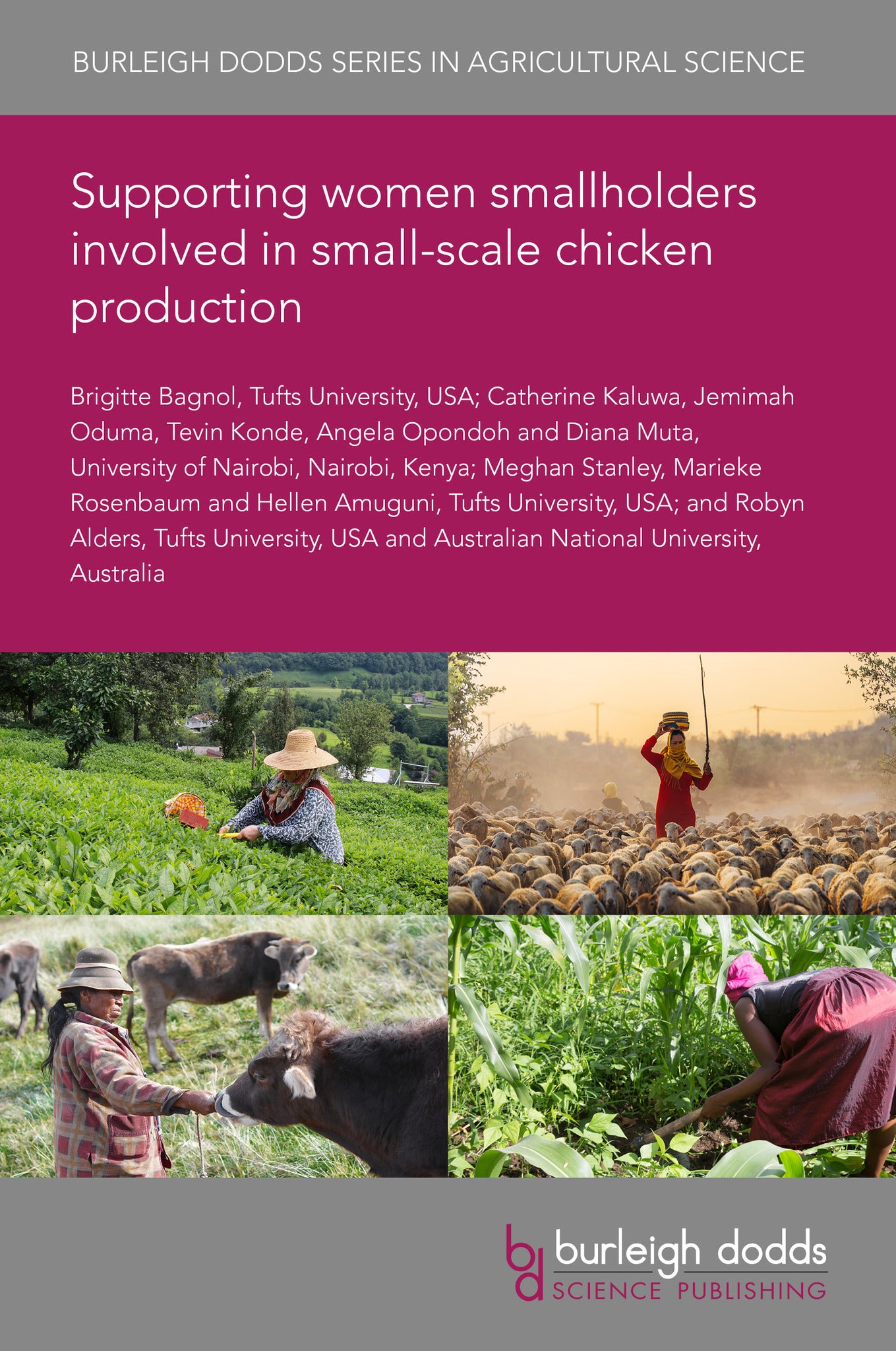We're sorry. An error has occurred
Please cancel or retry.
Supporting women smallholders involved in small-scale chicken production

Some error occured while loading the Quick View. Please close the Quick View and try reloading the page.
Couldn't load pickup availability
- Format:
-
06 October 2025

By the end of the 1990s research had clearly established that women had a good control over the benefit resulting from small-scale chicken use and sale. This paper analyses the differences between gender-blind and gender-aware approaches in dealing with small-scale chicken production. Three case studies are evaluated. Two are gender aware and aimed at supporting women’s chicken raising endeavour through the control of Newcastle disease in Africa: One is gender-accommodating and the other is gender transformative. The third case study is gender-blind and examines the impact of the 2003-6 Highly Pathogenic Avian Influenza outbreak in Asia. While promoting women’s participation in animal health and livestock raising activities can contribute to gender awareness and improve gender dynamics in the sector, the gender-blind intervention during the HPAI outbreak negatively impacted female farmers raising small-scale chickens. The authors highlight the importance on using gender-transformative approaches in initiatives that target livestock production systems.

TECHNOLOGY & ENGINEERING / Agriculture / Sustainable Agriculture, Smallholdings, TECHNOLOGY & ENGINEERING / Agriculture / Animal Husbandry, Sustainable agriculture, Poultry farming

- 1 Introduction
- 2 Case study 1: Kyeema projects with Newcastle disease vaccination campaigns with female community vaccinators
- 3 Case study 2: womens empowerment along the Newcastle disease vaccine value chain in Kola and Kalama ward, Machakos County, Kenya
- 4 Case study 3: high pathogenicity avian influenza
- 5 Discussion of the three case studies
- 6 Conclusion and future trends in research
- 7 Where to look for further information
- 8 References



